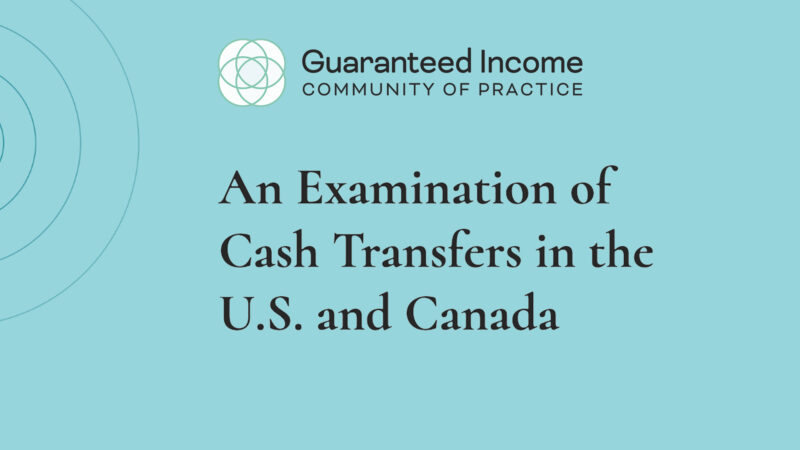Guaranteed Income
An Examination of Cash Transfers in the U.S. and Canada
12. 13. 2022
This literature shows the promise of bold, permanent cash transfer policy in fighting economic precarity and creating a more just economy.

Introduction
This literature review summarizes the available research on cash transfer programs in the United States and Canada. While there are longstanding cash transfer programs around the world with encouraging results, this literature review focuses on programs in the U.S. and Canada in order to inform an understanding of the impact a federal guaranteed income and other cash policies could have in the United States.
Common Terms
In cash transfer programs, a lead organization, commonly a government or nonprofit organization, directly transfers a set amount of money to eligible recipients. Cash transfer programs can be conditional, meaning recipients must comply with a specific requirement to receive the money, like attending school, completing financial counseling, or working a certain number of hours; or unconditional, meaning recipients receive the money regardless of other activities. Additionally, cash transfer programs can be one-time or recurring at various intervals. Recurring cash transfer programs are commonly administered on a monthly basis. Depending on the lead organization and program design, cash transfer programs can be administered as tax credits or direct payments separate from the tax system.
Guaranteed income is a regular cash payment accessible to members of a community, with no strings attached and no work requirements (Guaranteed Income Community of Practice, 2022). Unconditional, recurring cash transfer programs create a guaranteed income by ensuring recipients receive regular payments that they can spend to best meet their needs. Guaranteed income helps build a robust floor under which no one can fall and is meant to supplement, not supplant, existing social safety net benefits.